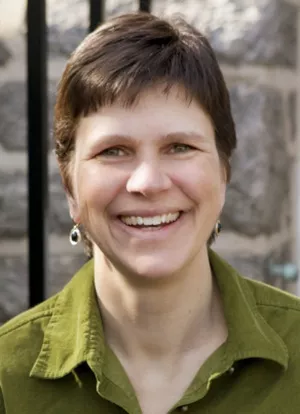Catherine Crouch Elected to American Physical Society Forum Leadership

Professor of Physics Catherine Crouch has been elected vice chair of the American Physical Society (APS) Forum on Education. The APS is the premier professional society for physicists in the United States and also includes international members. As part of this organization, the Forum on Education (FEd) works to involve its members in activities related to physics education, from elementary to graduate school.
“I am extremely pleased to be elected vice chair in order to serve my professional community through my commitment to education and research,” says Crouch, who leads Natural Sciences and Engineering division-wide initiatives related to diversity and inclusion at Swarthmore. “By serving in the leadership of the FEd, I hope to support the ways that APS has already found to effectively engage with education, and to identify new ways to further increase the effectiveness of APS’s involvement in education.”
At Swarthmore, Crouch has been a leader in curriculum development and assessment for reformed introductory physics for the life sciences (IPLS). She was principal investigator or co-principal investigator on four National Science Foundation grants and also received funding from the Howard Hughes Medical Institute. In addition to her physics education research and curriculum development connected to IPLS, Crouch has taught across the undergraduate curriculum and in the Swarthmore Summer Scholars Program for first-generation and underrepresented students.
In her new role in the APS, she will help advise the organization’s efforts in faculty development, K–12 teacher recruitment, and setting national standards for undergraduate physics education, as well as new initiatives such as Step Up 4 Women and the graduate-level Bridge program.
“These programs testify to the value of strong APS engagement with education,” says Crouch. “The Forum on Education represents physicists’ engagement with a broad range of educational issues, ranging from recruitment of physics majors, diversity, and inclusion to pedagogy and curriculum at all levels.
“In my 15 years as a faculty member teaching and doing research at an all-undergraduate institution,” adds Crouch, “I have had the opportunity to connect with a wide variety of physicists around both research and education. I hope to bring that appreciation of the breadth of the APS membership together with my professional expertise to help APS continue to grow in its engagement with education.”



